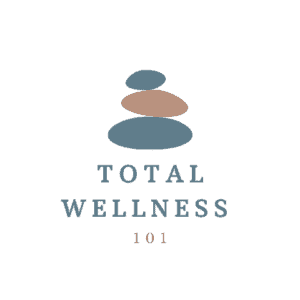All of us have habits. Without habits, we would be frozen in indecision and unable to accomplish even the most basic tasks. But as you know, some habits are better than others. The thing is that most of what we want to improve in our lives will involve us having to create new habits or get rid of bad ones. So this is very important. Here we will talk about how to create habits and how to replace old habits with new, better ones.
What Are Habits?
Habits are what drive us to do a large portion of what we do every day. Most are automatic and unconscious, but they can be changed. In psychology, habits are defined as a relatively fixed way of behaving that is acquired through frequent repetition or physiological exposure. This essentially means that a habit forms when we do the same thing over and over again. The more we do it, the more it becomes a part of us. If we do something new, our brain will have to adjust to it, to make it a part of us. For example, if we try to learn a new language, our brain has to adjust to new words, new phrases, new grammar and so on. But after a while, when we are used to it, our brain will automatically know the words, phrases and grammar. It feels natural to us, and we won’t think about it anymore. This is how habits form.
The brain likes to conserve energy and be efficient. In other words it’s lazy. Habits may also be classified as a heuristic or a mental shortcut created by the brain. This allows the conscious brain to focus on larger, more important tasks while allowing itself to repeat old patterns and routines throughout the day. So habits can be very useful. This is why most don’t really have to think about how to shower, chew their food, or have normal body language in a conversation. They already have a habitual way of performing those tasks.
However, these comfort zones can actually end up doing harm when you teach yourself the wrong habits which hurt you down the line.
How Can I Create a Habit?
Habits are often thought of as being hard to create, but in reality all you need to form a habit is a trigger and a reward. A trigger is something that tells your brain to go into automatic mode and perform a behavior, while a reward is something that makes your brain feel good. If you keep repeating this process, the reward will become more and more powerful and your brain will begin to link a certain behavior to the reward. This is the basis of all habits. You can get the reward by doing something as simple as brushing your teeth, or you can get the reward by doing something as complicated as studying a new language.
This is similar to operant conditioning in psychology which involves reinforcing or punishing a voluntary behavior to either encourage or discourage the behavior. You train yourself through operant conditioning without even thinking about it. You may scroll on the phone at night because you see funny videos or because the likes and comments make you feel good, thus reinforcing the behavior. And you may not go to the gym because you went once and felt awkward because you didn’t know what you were doing. Or your body hurt the next day so you felt punished by going, making it less likely for you to go to the gym the next day.
However, we are human beings and are capable of being more than rats with a piece of cheese. So you are able to consciously train yourself to perform certain actions with greater frequency through this understanding of psychology.
Here’s how to create a habit:
- Pick a specific habit that you want. The simpler the better.
- Create a plan or schedule of when you want to perform that habit.
- Write it down or set electronic notifications. You need a trigger for performing the habit. It could be something you do as soon as you finish work, at a certain time, or when you’re in a certain place. Pick what your trigger will be for the habit.
- If the habit will initially be unenjoyable, pair it with something enjoyable or reward yourself with something you enjoy for accomplishing it.
- Have a back up plan to allow for some flexibility with the habit.
- Practice the habit consistently for at least 30 days, recording your progress or streak.
Here is an example of someone wanting to read their self-development book every day using the steps above:
“I want to read my self-development book for 10 minutes every day. I will read when I get off work or at 5:30 PM and will set a reminder on my phone for 5:25 PM. I cannot turn on the television until I’m done, but upon completion I may turn on the television and relax. If this time is missed for some pressing reason, I will read the 10 minutes before bed at 9:00 PM. I will mark a check on my calendar for every day in a row that I do my reading and practice for 30 days straight.”
It is popularly said that it takes 21 days to build a habit. This is however a myth because everyone is different and every habit is different. It can take more or less depending on the person or habit. But, the truth to it is that it will take time to learn a new habit and it requires consistency. So give these steps a try.
How Can I Replace Bad Habits?
Bad habits can ruin our lives. Bad habits are created when we do something over and over again, without realizing the consequences. It’s a bit hard to get rid of bad habits, but if you want to get rid of a bad habit, one great way is to find a replacement. It’s as simple as that. One way to stop doing something is to do something else. The hard part is finding something else to do that will be as rewarding. An obvious example of this is trying to break your soda habit. So instead of the regular soda you drink, you may opt for a sugar-free form of the soda or some other drink that you will also enjoy.
Something else you should do is avoid the trigger. If you want to break a smoking habit, avoid hanging out with people who smoke if you can. Don’t have cigarettes in your home. Don’t go to the places or do the things that usually make you want to smoke. Avoiding situations that would tempt you to perform the habit is a great start, especially if you feel too weak to resist the temptation to perform a certain habit.
Another thing you can do is to write down the consequences if you were to continue with your habit. Put it on paper and really think about where you’ll be in 5-10 years if you can break this habit.
Will you be overweight? Will your relationship fail? Will you be in the same place you are now, having not progressed at all in life?
Sometimes the fear of future consequences is enough to give you the push you need. Not many people actually think about the long term consequences for their actions.
Of course you can think of something that works for you but these are some ideas to help you get started.
Habits are all around you, whether you are aware of them or not. The better you learn about habits, the easier it will be for you to create habits of your own. Habits will either make or break you. So take an inventory of your life now and see which habits you want and which you don’t, and make the steps necessary towards creating your perfect life.
Recent Posts
In the pursuit of professional success, the modern working professional often finds solace in a cup of coffee or energy drink. Caffeine, the world's most widely consumed psychoactive substance, has...
Strategies for Sales Professionals to Reduce Back Pain and Injuries
In the fast-paced world of sales, professionals often find themselves navigating through long hours, client meetings, and constant travel. Amidst the pursuit of closing deals and meeting targets, the...

